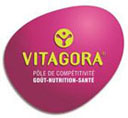The project
Context. Culinary dependence describes a situation in which senior citizens delegate all or part of their shopping and/or the preparation of their meals to others (home help, meals-on-wheels, institution) following the onset of inability (lack of skills, physical or cognitive impairment). Even though we cannot assume that there is a cause-and-effect relationship between dependence and malnutrition, it is clear that despite the resources used to take care of dependent senior citizens, the risk of malnutrition in this population is high (25 to 50% according to estimations).
Objective. The ambition of the RENESSENS project is to develop solutions to «personalize» the management of dependent senior citizens for their meals. The specific objectives are as follows:
- Tell me what you eat Identify dietary profiles among the population of dependent senior citizens.
- Know them better to feed them better. Develop solutions to adapt the food on offer to the needs and abilities of the elderly while respecting their habits and food preferences.
- Blending doesn't rhyme with puree but with careful preparation. Use molecular gastronomy techniques to give texture to blended foods and pleasure to senior citizens who suffer from swallowing disorders.
- The challenge of personalized cuisine. Determine the cost/benefit ratio of personalized foods for the senior citizen (health benefits, well-being), for the establishments concerned (cost/benefit ratio for setting up personalized meals) and for society (durability of the solutions proposed).
Key numbers. The RENESSENS project is financed by the ANR to the amount of 898 k€ for a total cost of almost 3 million euros. This project is also supported by the Vitagora competitiveness cluster. This 4-year project (2014 to 2017) brings together 9 public research institutes, 9 private partners and 2 associations.
 |
 |
 |